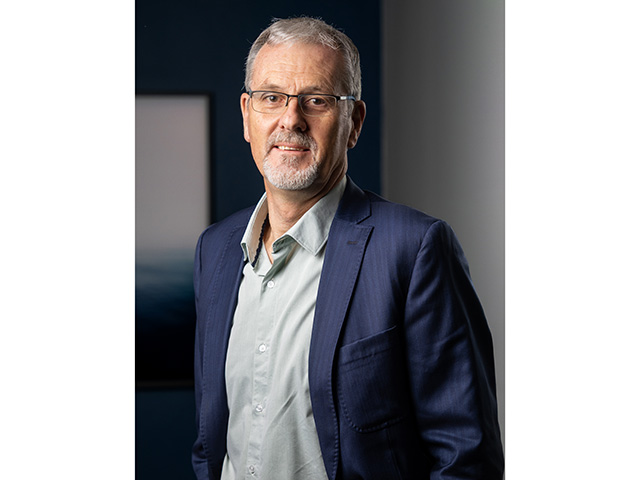How ERP can make packaging and F&B manufacturing more sustainable
By Industry Contributor 2 December 2022 | Categories: feature articles
FEATURES SPONSORED BY rAge EXPO:
By Doug Hunter, Manager: Customer and Ecosystem Enablement, Syspro
The packaging and F&B manufacturing industries continue to face increasing pressure from governments and consumers alike to become more sustainable. Sustainable packaging and manufacturing, however, remains a double-edged sword: in South Africa, 38 percent of consumers regularly make sustainable packaging choices in supermarket food aisles, yet up to almost 50 percent of waste in the country is the by-product of the processing and packaging stage of the value chain.
As the world stands, significantly more must be done to address the climate emergency. According to the provisional 2022 State Of The Global Climate report, the last eight years have been the warmest on record, and at the recent COP27 summit, United Nations Secretary-General António Guterres told countries gathered that "humanity has a choice: cooperate or perish”. Time is of the essence, and to appeal to environmentally conscious consumers, stay in line with regulations, and embrace a circular economy, industries across the board must reduce the waste they produce and make the packaging and processes they use more sustainable.
To date, ERP systems have enabled cost reduction and streamlined operations in many sectors, and their capabilities are now turbo-charged thanks to digitalisation and for some the cloud. This optimisation needs to extend to the environment, and the packaging and F&B manufacturing industries play a critical role here. By leveraging an ERP system to unlock operations efficiencies they can also scale sustainability efforts through reducing value-chain waste, as well as being able to quickly respond to evolving customer demands, changing regulations, and, ultimately, the climate crisis. Here’s how.
Sustainability through supply-chain optimisation, backed up by data
As greater emphasis is placed on sustainability worldwide and locally, packaging and F&B manufacturers will need to waste less and be more agile. A data-led ERP system not only aids cost reduction but also enables strategic sourcing and manufacturing decisions. To align with sustainable packaging objectives, part of this strategy should involve eliminating waste while remaining agile and responsive.
An ERP solution can help businesses see where waste is an issue in the value chain so they can make better environmental decisions and put more sustainable processes in place. Doing so means that not only is waste reduced or even eliminated, but the entire supply chain can be optimised in several ways, such as insightful reporting functionality to meet requirements for waste and recycling regulations, meeting industry standards for sustainable manufacturing of packaging materials and compliance and gaining business intelligence for better strategic planning.
Data – a single source of truth – is at the heart of any modern ERP system, and this information can be used to back up a manufacturer’s or packaging company’s sustainability claims, as well as streamline the entire supply chain. For example, an ERP’s data can help manufacturers consolidate logistics from different places, resulting in fewer shipments and a reduced carbon footprint.
The future for some F&B supply chains is Just-In-Time
Packaging companies have always trickle fed F&B manufacturers with the next few days’ demand from their customers. This had grown collaboration in the forecasting process between players. In addition, F&B manufacturers often prepare batches of bulk first then fill or pack to their own brand and then private label brands in sequence.
Many are also shifting to a Just-in-Time approach, so finished products are created only to meet forecast demand, not in surplus or in advance. This reduces inventory and unnecessary loads on the system while boosting efficiency, speeding up product delivery, and reducing cost. A flexible ERP “recipe” module such as Bill of Materials (BOM) is critical to cope effectively with changing recipes to match ingredient availability, lean operations, and Just-In-Time, for sustainable supply chains.
For example, packaging companies who want to use recycled material in their production process without compromising the final product should be continually checking their BOM, which ensures they have full, real-time visibility and control of the quantity, quality, lead times, and cost of the materials, among other production, purchasing, and processing factors. Accurate BOM data will also help packaging companies trace and report on the percentage of recycled materials that make up the final product. Or, if design or production teams change a BOM to include recycled material, the changes are seamlessly passed on to the suppliers, and the new orders are delivered to the updated requirement, while an automated Request for Quote allows existing and new suppliers to include reused or recycled items in their tenders.
To run truly sustainable operations – without greenwashing or affecting the bottom line – packaging companies and F&B manufacturers must optimise their operations to reduce value-chain waste and enable a Just-In-Time approach. They’re also going to need accurate, real-time data for visibility of their supply chains and production processes that are fully integrated, easy to update, and guide business decisions that are aligned to the environment, regulations, and what customers want. Flexible management tools like ERP facilitate this shift while still allowing growing businesses to scale and thrive.
Most Read Articles

Have Your Say
What new tech or developments are you most anticipating this year?



.jpg)
